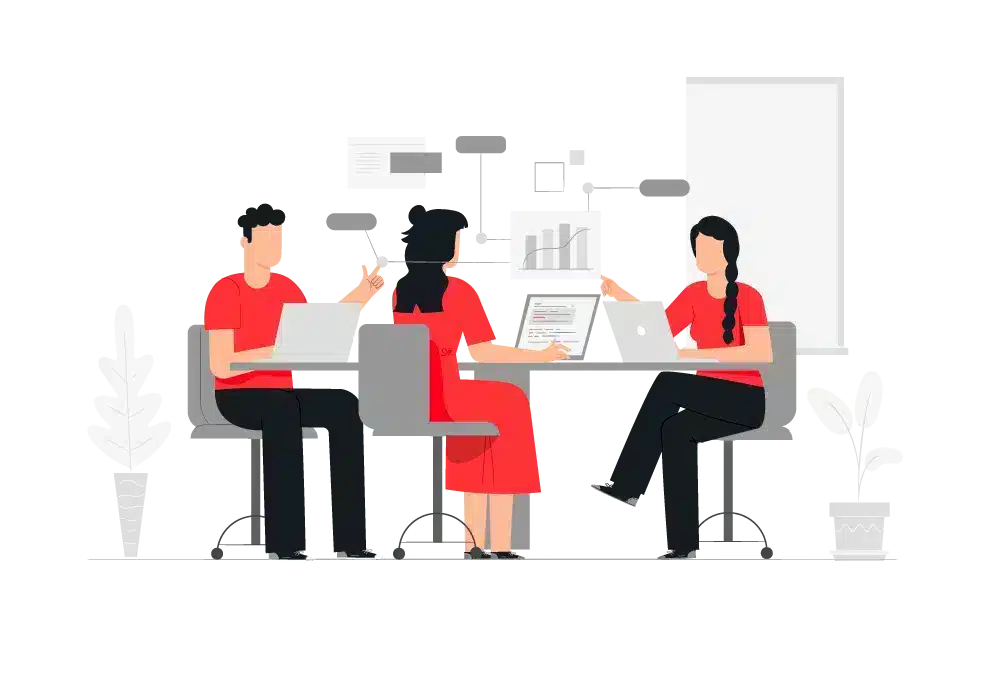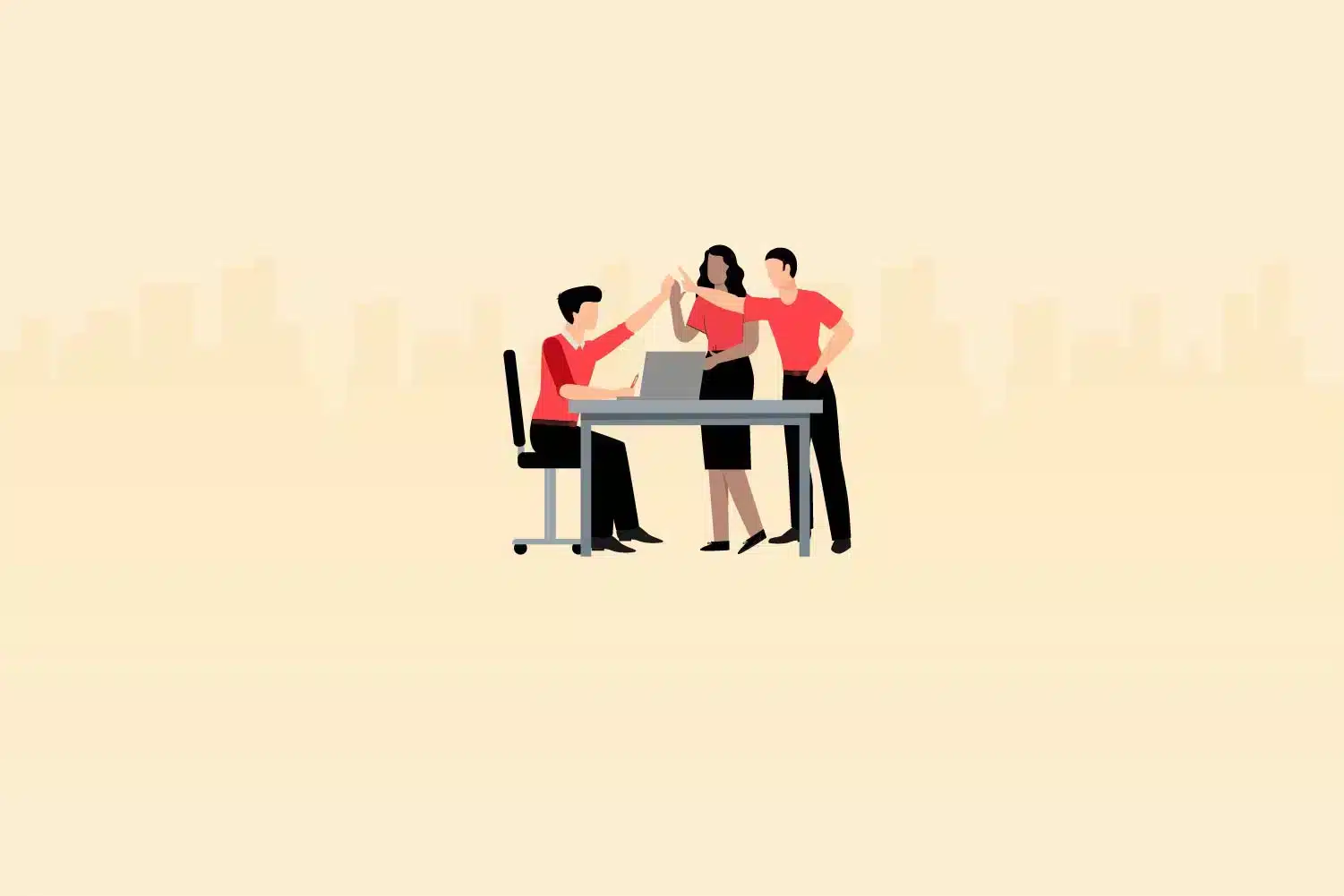The world of strategy consulting has witnessed a remarkable evolution in recent years, driven by the dynamic nature of business landscapes and the need for expert guidance in navigating complex challenges. As HR professionals and CXOs embark on the crucial task of recruiting strategy consultants, it is essential to understand the prevailing trends and landscape of this field.
Analyzing the latest data, we can observe that the demand for strategy consultants continues to soar, with organizations across industries recognizing the value of strategic thinking and analysis. In this rapidly changing environment, where innovation and agility are paramount, hiring the right strategy consultant can be a game-changer for businesses striving for long-term success. In this article, we explore key insights and interview questions to help HR professionals and CXOs identify top-tier strategy consultants who can drive strategic initiatives and elevate organizational performance.
Here are the top 60 Strategy Consultant interview questions to ask job applicants:
15 general interview questions for the Strategy Consultant
- Can you describe your experience in providing strategic advice to organizations?
- How do you approach analyzing a company’s competitive landscape and identifying strategic opportunities?
- Can you provide an example of a successful strategic project you have led? What were the key outcomes and how did you achieve them?
- How do you stay updated on industry trends and emerging market dynamics to inform your strategic recommendations?
- What methodologies and frameworks do you employ when developing strategic plans for clients?
- How do you collaborate with cross-functional teams and stakeholders to implement strategic initiatives effectively?
- Can you share a situation where you had to manage conflicting priorities or divergent opinions among stakeholders? How did you handle it?
- How do you assess and manage risks when developing strategic plans
- Can you discuss a time when you had to adapt your strategic approach due to unexpected market changes?
- How do you measure the success of strategic initiatives and track their impact on business performance?
- Can you provide an example of a strategic challenge you encountered and how you overcame it?
- How do you ensure your strategic recommendations align with an organization’s long-term goals and vision?
- How do you effectively communicate complex strategic concepts and plans to diverse audiences?
- Can you share a situation where you had to persuade key stakeholders to adopt a strategic change or shift in direction?
- How do you prioritize strategic initiatives and allocate resources to maximize their impact?
5 sample answers to general interview questions for the Strategy Consultant
- Can you describe your experience in providing strategic advice to organizations?
Look for: A candidate who can showcase their experience in delivering strategic advice, demonstrating a deep understanding of the consulting process, industry knowledge, and client impact.
Example Answer: “Throughout my career, I have worked with various organizations, providing strategic advice to help them achieve their business objectives. One notable project involved a technology company that was facing increased competition. I conducted a comprehensive analysis of their market position, identified growth opportunities in emerging markets, and devised a strategic plan to expand their product offerings. As a result, the company successfully entered new markets, increased revenue by 20%, and gained a competitive advantage.”
- How do you approach analyzing a company’s competitive landscape and identifying strategic opportunities?
Look for: An analytical candidate who demonstrates a structured approach to assessing competition, conducting market research, and identifying actionable strategic opportunities.
Example Answer: “When analyzing a company’s competitive landscape, I begin by conducting in-depth market research to understand industry trends, competitive dynamics, and customer preferences. I utilize frameworks such as Porter’s Five Forces and SWOT analysis to assess the company’s position. In a recent project, I conducted a detailed competitor analysis for a retail client. By evaluating their competitors’ strengths, weaknesses, and market strategies, I identified untapped customer segments and recommended differentiated product offerings, resulting in a 15% increase in market share.”
- Can you share a situation where you had to manage conflicting priorities or divergent opinions among stakeholders? How did you handle it?
Look for: A candidate who can demonstrate strong communication, negotiation, and conflict resolution skills, along with the ability to build consensus among stakeholders.
Example Answer: “In a previous engagement, I was tasked with developing a new pricing strategy for a consumer goods company. However, there were conflicting opinions among the sales, marketing, and finance teams regarding the optimal approach. To address this, I organized cross-functional workshops to facilitate open discussions, understand concerns, and align objectives. By actively listening to all stakeholders, finding common ground, and leveraging data-driven insights, I successfully achieved consensus on a pricing strategy that increased profitability by 10% without compromising market share.”
- How do you assess and manage risks when developing strategic plans?
Look for: A candidate who demonstrates a systematic approach to risk assessment, mitigation, and contingency planning in strategic decision-making.
Example Answer: “When developing strategic plans, I employ a comprehensive risk assessment process. This includes identifying potential risks and their likelihood of occurrence, assessing their potential impact on the business, and developing appropriate risk mitigation strategies. In a recent project for a financial services client, I conducted a thorough analysis of regulatory changes, market volatility, and technological disruptions. By integrating risk management principles into the strategic plan, we were able to proactively address potential challenges, ensure compliance, and maintain a competitive edge.”
- How do you measure the success of strategic initiatives and track their impact on business performance?
Look for: A candidate who demonstrates a results-oriented mindset, utilizing key performance indicators (KPIs) and metrics to measure the effectiveness and impact of strategic initiatives.
Example Answer: “To measure the success of strategic initiatives, I define clear objectives and establish relevant KPIs aligned with the organization’s goals. For instance, in a recent project for a healthcare provider, we implemented a patient engagement program to improve customer satisfaction and loyalty. By tracking metrics such as patient feedback scores, repeat visits, and referral rates, we were able to assess the effectiveness of the program. As a result, customer satisfaction increased by 20%, and patient retention improved, contributing to overall business growth.”
15 behavioral interview questions for a Strategy Consultant
- Tell me about a time when you faced a complex strategic challenge. How did you approach it, and what was the outcome?
- Describe a situation where you had to work with a difficult client or stakeholder. How did you handle the relationship and ensure successful project outcomes?
- Can you share an example of a time when you had to quickly adapt your strategic approach due to unforeseen circumstances? How did you manage the situation?
- Tell me about a project where you had to lead a team of individuals with diverse backgrounds and skill sets. How did you ensure effective collaboration and achieve project goals?
- Describe a time when you had to present a strategic plan or recommendation to senior executives. How did you prepare for the presentation, and how did you handle any challenging questions or objections?
- Can you give an example of a strategic initiative you implemented that resulted in significant cost savings or operational efficiency improvements?
- Tell me about a time when you had to influence key stakeholders to embrace a strategic change or adopt a new direction. How did you approach the situation and achieve buy-in?
- Describe a situation where you identified a strategic opportunity that others had overlooked. How did you leverage that opportunity and what impact did it have?
- Can you share an experience where you successfully managed a strategic project with tight timelines and competing priorities? How did you ensure timely delivery and quality outcomes?
- Tell me about a time when you had to navigate through ambiguity or uncertainty to develop a strategic plan. How did you gather the necessary information and make informed decisions?
- Describe a situation where you had to overcome resistance to change when implementing a strategic initiative. How did you address the resistance and ensure successful adoption of the change?
- Can you give an example of a time when you identified and resolved a critical flaw or weakness in an organization’s existing strategy? What impact did your intervention have?
- Tell me about a project where you had to analyze a company’s financial data and market trends to identify growth opportunities or improve profitability. How did you approach the analysis and what recommendations did you make?
- Describe a time when you had to manage competing priorities and resource constraints while developing a strategic plan. How did you prioritize and allocate resources effectively?
- Can you share an experience where you had to collaborate with cross-functional teams to develop and implement a comprehensive strategic initiative? How did you ensure coordination and alignment among the teams?
5 sample answers to behavioral interview questions for the Strategy Consultant
- Tell me about a time when you faced a complex strategic challenge. How did you approach it, and what was the outcome?
Look for: A candidate who can demonstrate critical thinking, problem-solving skills, and the ability to navigate complex challenges with a structured approach.
Example Answer: “In a previous engagement, I was tasked with developing a growth strategy for a technology startup entering a saturated market. To tackle this complex challenge, I conducted thorough market research, analyzed competitor strategies, and identified unique value propositions. I also collaborated with the client’s internal teams to gather insights and understand their capabilities. By leveraging a SWOT analysis, I developed a differentiated market positioning strategy, which led to a 30% increase in market share and accelerated revenue growth.”
- Describe a situation where you had to work with a difficult client or stakeholder. How did you handle the relationship and ensure successful project outcomes?
Look for: A candidate who can demonstrate strong interpersonal skills, the ability to build relationships, and effectively manage challenging client/stakeholder dynamics.
Example Answer: “In a strategic project for a multinational client, I encountered a difficult stakeholder who had strong opposing views on the recommended strategic direction. To address this challenge, I proactively initiated regular communication and stakeholder meetings to foster transparency and build trust. By actively listening to their concerns, addressing them with data-driven insights, and involving them in the decision-making process, I successfully gained their buy-in. This resulted in a collaborative working relationship and ultimately led to the successful implementation of the strategic initiative.”
- Can you share an example of a time when you had to quickly adapt your strategic approach due to unforeseen circumstances? How did you manage the situation?
Look for: A candidate who can demonstrate adaptability, agility, and the ability to make sound decisions under pressure.
Example Answer: “During a project for a client in the retail industry, a sudden market disruption occurred due to the emergence of a new competitor. This required a swift adaptation of our strategic approach. I immediately convened a project team meeting to assess the situation, reevaluate our assumptions, and gather additional market intelligence. Based on the new information, we quickly revised our strategic recommendations, focusing on enhancing customer loyalty and differentiating our client’s offerings. The agile response enabled the client to successfully weather the competitive challenge and maintain market share.”
- Tell me about a project where you had to lead a team of individuals with diverse backgrounds and skill sets. How did you ensure effective collaboration and achieve project goals?
Look for: A candidate who can demonstrate leadership, teamwork, and the ability to drive collaboration among diverse team members.
Example Answer: “In a strategic project for a healthcare organization, I led a team consisting of members from various departments, including marketing, finance, and operations. To ensure effective collaboration, I facilitated regular team meetings, established clear roles and responsibilities, and fostered an environment of open communication. I encouraged team members to leverage their unique expertise, fostering a sense of ownership and inclusion. By leveraging individual strengths and facilitating cross-functional collaboration, we achieved project goals, resulting in a streamlined operational process and improved patient satisfaction.”
- Can you share an experience where you successfully managed a strategic project with tight timelines and competing priorities? How did you ensure timely delivery and quality outcomes?
Look for: A candidate who can demonstrate effective project management skills, the ability to prioritize tasks, and deliver results within challenging constraints.
Example Answer: “In a high-pressure engagement for a financial services client, we had a strategic project with aggressive timelines and multiple competing priorities. To manage this effectively, I conducted a thorough project analysis, identified critical path activities, and established a clear project plan with defined milestones. I worked closely with the team to allocate resources efficiently and provided regular updates to stakeholders. By closely monitoring progress, addressing potential roadblocks proactively, and leveraging my project management skills, we successfully delivered the project on time while achieving the desired quality outcomes.”
15 personality interview questions for the Strategy Consultant
- How do you handle ambiguity and uncertainty when faced with complex strategic challenges?
- Can you describe a situation where you demonstrated resilience and persistence in pursuing a strategic goal despite obstacles or setbacks?
- How do you manage your time and prioritize tasks when working on multiple strategic projects simultaneously?
- Can you share an experience where you had to think creatively and outside the box to develop innovative strategic solutions?
- How do you approach collaborating with colleagues and stakeholders who have different perspectives or work styles?
- Tell me about a time when you had to make a difficult decision with limited information. How did you approach it?
- How do you stay updated on industry trends and developments to enhance your strategic insights and recommendations?
- Can you describe a situation where you had to lead a team through a significant change or transformation? How did you manage the process and ensure team buy-in?
- How do you approach building and maintaining relationships with clients or stakeholders to establish long-term partnerships?
- Can you share an example of when you had to deliver a difficult message or provide constructive feedback to a colleague or client? How did you handle the situation?
- How do you ensure that your strategic recommendations align with an organization’s values and ethical guidelines?
- Can you describe a situation where you had to balance the need for short-term results with the importance of long-term strategic planning?
- How do you approach learning and personal development to continuously enhance your strategic consulting skills?
- Tell me about a time when you had to influence a decision or gain buy-in from a reluctant stakeholder. How did you approach the situation?
- How do you maintain objectivity and avoid bias when conducting strategic analyses and making recommendations?
5 sample answers to personality interview questions for the Strategy Consultant
- How do you handle ambiguity and uncertainty when faced with complex strategic challenges?
Look for: A candidate who can demonstrate adaptability, comfort with ambiguity, and the ability to make informed decisions in uncertain situations.
Example Answer: “When faced with ambiguity and uncertainty, I embrace it as an opportunity for learning and growth. I start by gathering as much information as possible, conducting thorough research, and engaging with stakeholders to gain diverse perspectives. I am comfortable with exploring multiple potential paths and evaluating their pros and cons. In a recent project, our client faced uncertainty due to shifting market dynamics. By proactively monitoring industry trends, engaging in scenario planning, and constantly reassessing our assumptions, we were able to adapt our strategic approach to align with changing circumstances and deliver successful outcomes.”
- Can you describe a situation where you demonstrated resilience and persistence in pursuing a strategic goal despite obstacles or setbacks?
Look for: A candidate who can showcase resilience, determination, and the ability to overcome challenges while maintaining focus on long-term objectives.
Example Answer: “In a strategic project for a manufacturing company, we encountered unexpected production delays and supply chain disruptions. Despite these setbacks, I remained resilient and persistent in pursuing our strategic goal of cost optimization. I collaborated closely with the operations team to identify bottlenecks and implement process improvements. I also proactively communicated with stakeholders, managing their expectations while assuring them of our commitment to achieving the long-term objectives. Through continuous monitoring, problem-solving, and course correction, we ultimately achieved the desired cost reductions and operational efficiencies.”
- How do you approach collaborating with colleagues and stakeholders who have different perspectives or work styles?
Look for: A candidate who can demonstrate strong interpersonal skills, flexibility, and the ability to build relationships and drive collaboration in diverse teams.
Example Answer: “I believe that diverse perspectives and work styles enrich the strategic process. When collaborating with colleagues and stakeholders, I actively listen to their viewpoints, seeking to understand their underlying motivations and objectives. I encourage open and respectful dialogue, creating a safe space for everyone to contribute their ideas. By acknowledging and valuing diverse perspectives, I strive to find common ground and leverage our collective strengths. In a recent project, I successfully facilitated collaboration between team members with varying expertise, resulting in a well-rounded strategic plan that incorporated diverse insights and gained widespread support.”
- How do you ensure that your strategic recommendations align with an organization’s values and ethical guidelines?
Look for: A candidate who prioritizes ethical considerations, demonstrates a strong sense of integrity, and integrates organizational values into their strategic decision-making.
Example Answer: “Ethics and alignment with an organization’s values are fundamental to my strategic consulting approach. I thoroughly familiarize myself with the organization’s values and ethical guidelines, ensuring that they serve as a guiding framework for my recommendations. I proactively consider the potential impact of our strategic initiatives on various stakeholders, both internally and externally. I believe in maintaining transparency and open communication throughout the process, seeking feedback from key stakeholders to ensure that our recommendations are not only strategically sound but also aligned with the organization’s values. By integrating ethics into our strategic approach, we create a foundation for sustainable success.”
- How do you approach learning and personal development to continuously enhance your strategic consulting skills?
Look for: A candidate who demonstrates a growth mindset, a commitment to continuous learning, and proactive efforts to enhance their strategic consulting skills.
Example Answer: “I am deeply committed to personal development and continuously enhancing my strategic consulting skills. I actively seek out learning opportunities, such as attending industry conferences, participating in relevant training programs, and staying updated on the latest research and trends. I also foster a culture of knowledge-sharing within my team, encouraging colleagues to exchange insights and best practices. Additionally, I value feedback from mentors and peers, leveraging their expertise to identify areas for improvement. By embracing a growth mindset and investing in my professional development, I ensure that I am equipped with the latest tools and knowledge to deliver exceptional strategic consulting services.”
When should you use skill assessments in your hiring process for Strategy Consultant?
Skill assessments can be valuable additions to the hiring process for Strategy Consultants. They provide objective insights into a candidate’s abilities, knowledge, and proficiency in specific skills relevant to the role. Assessments offer a standardized and consistent way to evaluate candidates, helping to identify those who possess the necessary skills and competencies required for success in the role.
Assessments are important because they go beyond self-reported qualifications and allow employers to verify a candidate’s skills and capabilities. They help to mitigate bias and increase the accuracy of candidate evaluations, ensuring that the hiring decisions are based on objective data. By incorporating skill assessments into the hiring process, organizations can make more informed decisions and select candidates who have the right expertise and potential to excel as Strategy Consultants.
Various assessments can be used to assess skills in Strategy Consultants. These may include case studies, problem-solving exercises, analytical reasoning tests, business simulations, and strategic planning scenarios. These assessments can evaluate a candidate’s ability to think critically, analyze complex situations, make strategic decisions, and communicate their ideas effectively. Additionally, behavioral assessments and structured interviews can be employed to assess traits such as adaptability, leadership potential, collaboration skills, and ethical judgment.
Overall, skill assessments offer a valuable means to evaluate candidates objectively and effectively, ensuring that the selected individuals possess the requisite skills and competencies to excel as Strategy Consultants.
Use our interview questions and skill tests to hire a talented Strategy Consultant
Unlock the potential of your hiring process with Testlify’s comprehensive skill assessments and interview questions specifically designed for strategy consultants.
Our extensive test library offers a wide range of assessments, including cognitive function, personality, situational judgment, programming, and more. By leveraging these assessments, you can objectively evaluate candidates’ abilities, ensuring you shortlist the most talented individuals efficiently.
To further enhance your hiring process, we invite you to book a free 30-minute live demo. Our expert team will guide you through the platform, showcasing relevant skill tests tailored to your hiring needs. With our support, you can streamline candidate selection, saving valuable time and resources.
Ready to find the perfect fit for your strategy consultant role? Testlify provides the tools you need to make informed hiring decisions. Explore our skill assessments and interview questions today to uncover exceptional talent for your team.







